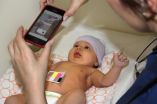(Press-News.org) DENVER (August 27, 2014) – Not all students returning to school this month will be up to date on their vaccinations. A new study conducted by Jennifer Reich, a researcher at the University of Colorado Denver, shows that the reasons why children may not be fully vaccinated depends on the class privilege of their mothers.
According to the National Network for Immunization Information, three children per 1000 in the U.S. have never received any vaccines, with almost half of all children receiving vaccines later than recommended. The number of unvaccinated children has led to several recent vaccine-preventable outbreaks in the U.S., including measles and whooping cough.
Published in Gender & Society, a top-ranked journal in Gender Studies and Sociology field, Reich's research shows that unvaccinated or under-vaccinated children from higher income backgrounds, with parents who are higher educated, have parents who intentionally choose to refuse or delay vaccinations out of a belief that they are protecting their children. On the other hand, children from families with lower incomes and with less educated parents tend to be under-vaccinated because they lack access to resources.
Reich, a professor of Sociology in the College of Liberal Arts and Sciences at CU Denver, found that middle and upper class "vaccine-refusers" are mothers who have the resources, education, and time to make decisions regarding vaccinations. These mothers consent only to vaccines they believe are most beneficial for their children and instead rely on other intensive practices they see as rendering vaccines less necessary. Breastfeeding, healthy nutrition, and monitoring social interactions and travel were listed as alternatives to vaccination and ways to prevent disease exposure.
"Vaccine-refusers see themselves as experts on their own children and question the relevance of public health claims that vaccines are necessary for all children," said Reich. "They trust that "mother's intuition," alongside their own personal research, is the best way to protect their children from potential harm."
On the other hand, mothers in low income families often do not have time to consider individual choices around vaccination. If their children are under-vaccinated it is more likely due to lack of access to medical care. This same lack of health care access makes poor children who are under-vaccinated potentially more vulnerable to health risks as rates of vaccine-preventable diseases continue to rise.
Reich's findings suggest women with more time, education, and resources claim greater freedom to reject public health interventions, which potentially carries consequences for undervaccinated children from lower income backgrounds who may not have access to care.
"Those who can reject vaccines without health risks are able to do so because they are protected by the large portion of the population who is vaccinated," said Reich. "Upper class parents who choose not to vaccinate their kids understand that they could be putting others at risk, but reiterated that their own children are their primary responsibility and suggest other mothers should advocate for their own children."
INFORMATION: END
Expression of privilege in vaccine refusal
CU Denver researcher finds income, education disparity in reasons for not vaccinating
2014-08-27
ELSE PRESS RELEASES FROM THIS DATE:
Dosage of HIV drug may be ineffective for half of African-Americans
2014-08-27
Many African-Americans may not be getting effective doses of the HIV drug maraviroc, a new study from Johns Hopkins suggests. The initial dosing studies, completed before the drug was licensed in 2007, included mostly European-Americans, who generally lack a protein that is key to removing maraviroc from the body. The current study shows that people with maximum levels of the protein — including nearly half of African-Americans — end up with less maraviroc in their bodies compared to those who lack the protein even when given the same dose. A simple genetic test for the ...
Scientists plug into a learning brain
2014-08-27
Learning is easier when it only requires nerve cells to rearrange existing patterns of activity than when the nerve cells have to generate new patterns, a study of monkeys has found. The scientists explored the brain's capacity to learn through recordings of electrical activity of brain cell networks. The study was partly funded by the National Institutes of Health.
"We looked into the brain and may have seen why it's so hard to think outside the box," said Aaron Batista, Ph.D., an assistant professor at the University of Pittsburgh and a senior author of the study published ...
Pitt and Carnegie Mellon engineers discover why learning can be difficult
2014-08-27
PITTSBURGH—Learning a new skill is easier when it is related to ability that we already possess. For example, a trained pianist might learn a new melody more easily than learning how to hit a tennis serve.
Neural engineers from the Center for the Neural Basis of Cognition (CNBC)—a joint program between the University of Pittsburgh and Carnegie Mellon University—have discovered a fundamental constraint in the brain that may explain why this happens. Published as the cover story in the Aug. 28, 2014, issue of Nature, they found for the first time that there are constraints ...
Kessler Foundation scientists study impact of cultural diversity in brain injury research
2014-08-27
West Orange, NJ. August 27, 2014. Kessler Foundation scientists examined the implications for cultural diversity and cultural competence in brain injury research and rehabilitation. The article by Anthony Lequerica, PhD, and Denise Krch, PhD: Issues of cultural diversity in acquired brain injury (ABI) rehabilitation (doi:10.3233/NRE-141079) was published by Neurorehabilitation. Drs. Lequerica and Krch are research scientists in Traumatic Brain Injury (TBI) Research at Kessler Foundation and co-investigators for the Northern New Jersey TBI Model System.
Cultural sensitivity ...
New smartphone app can detect newborn jaundice in minutes
2014-08-27
Newborn jaundice: It's one of the last things a parent wants to deal with, but it's unfortunately a common condition in babies less than a week old.
Skin that turns yellow can be a sure sign that a newborn is jaundiced and isn't adequately eliminating the chemical bilirubin. But that discoloration is sometimes hard to see, and severe jaundice left untreated can harm a baby.
University of Washington engineers and physicians have developed a smartphone application that checks for jaundice in newborns and can deliver results to parents and pediatricians within minutes. ...
Parents, listen next time your baby babbles
2014-08-27
Pay attention, mom and dad, especially when your infant looks at you and babbles.
Parents may not understand a baby's prattling, but by listening and responding, they let their infants know they can communicate which leads to children forming complex sounds and using language more quickly.
That's according to a new study by the University of Iowa and Indiana University that found how parents respond to their children's babbling can actually shape the way infants communicate and use vocalizations.
The findings challenge the belief that human communication is innate ...
Lifetime of fitness: A fountain of youth for bone and joint health?
2014-08-27
ROSEMONT, Ill.—Being physically active may significantly improve musculoskeletal and overall health, and minimize or delay the effects of aging, according to a review of the latest research on senior athletes (ages 65 and up) appearing in the September issue of the Journal of the American Academy of Orthopaedic Surgeons (JAAOS).
It long has been assumed that aging causes an inevitable deterioration of the body and its ability to function, as well as increased rates of related injuries such as sprains, strains and fractures; diseases, such as obesity and diabetes; and ...
Educated consumers more likely to use potentially unreliable online healthcare information
2014-08-27
The last time you experienced worrisome medical symptoms, did you look for advice online before consulting a health-care professional? If so, you're not alone. Consumers are increasingly turning to forums, video-sharing sites, and peer support groups to gather anecdotal information and advice, which may distract them from more reliable and trustworthy sources. New research to be presented at the HFES 2014 Annual Meeting in Chicago studies the characteristics of consumers who use the Internet to collect health-care information.
"Age, educational levels, and health status ...
Southwest may face 'megadrought' this century
2014-08-27
Due to global warming, scientists say, the chances of the southwestern United States experiencing a decade long drought is at least 50 percent, and the chances of a "megadrought" – one that lasts over 30 years – ranges from 20 to 50 percent over the next century.
The study by Cornell University, University of Arizona and U.S. Geological Survey researchers will be published in a forthcoming issue of the American Meteorological Society's Journal of Climate.
"For the southwestern U.S., I'm not optimistic about avoiding real megadroughts," said Toby Ault, Cornell assistant ...
Scientist uncovers red planet's climate history in unique meteorite
2014-08-27
TALLAHASSEE, Fla. — Was Mars — now a cold, dry place — once a warm, wet planet that sustained life? And if so, how long has it been cold and dry?
Research underway at the National High Magnetic Field Laboratory may one day answer those questions — and perhaps even help pave the way for future colonization of the Red Planet. By analyzing the chemical clues locked inside an ancient Martian meteorite known as Black Beauty, Florida State University Professor Munir Humayun and an international research team are revealing the story of Mars' ancient, and sometimes startling, ...
LAST 30 PRESS RELEASES:
Doctors and nurses believe their own substance use affects patients
Life forms can planet hop on asteroid debris – and survive
Sylvia Hurtado voted AERA President-Elect; key members elected to AERA Council
Mount Sinai and King Saud University Medical City forge a three-year collaboration to advance precision medicine in familial inflammatory bowel disease
AI biases can influence people’s perception of history
Prenatal opioid exposure and well-being through adolescence
Big and small dogs both impact indoor air quality, just differently
Wearing a weighted vest to strengthen bones? Make sure you’re moving
Microbe survives the pressures of impact-induced ejection from Mars
Asteroid samples offer new insights into conditions when the solar system formed
Fecal transplants from older mice significantly improve ovarian function and fertility in younger mice
Delight for diastereomer production: A novel strategy for organic chemistry
Permafrost is key to carbon storage. That makes northern wildfires even more dangerous
Hairdressers could be a secret weapon in tackling climate change, new research finds
Genetic risk for mental illness is far less disorder-specific than clinicians have assumed, massive Swedish study reveals
A therapeutic target that would curb the spread of coronaviruses has been identified
Modern twist on wildfire management methods found also to have a bonus feature that protects water supplies
AI enables defect-aware prediction of metal 3D-printed part quality
Miniscule fossil discovery reveals fresh clues into the evolution of the earliest-known relative of all primates
World Water Day 2026: Applied Microbiology International to hold Gender Equality and Water webinar
The unprecedented transformation in energy: The Third Energy Revolution toward carbon neutrality
Building on the far side: AI analysis suggests sturdier foundation for future lunar bases
Far-field superresolution imaging via k-space superoscillation
10 Years, 70% shift: Wastewater upgrades quietly transform river microbiomes
Why does chronic back pain make everyday sounds feel harsher? Brain imaging study points to a treatable cause
Video messaging effectiveness depends on quality of streaming experience, research shows
Introducing the “bloom” cycle, or why plants are not stupid
The Lancet Oncology: Breast cancer remains the most common cancer among women worldwide, with annual cases expected to reach over 3.5 million by 2050
Improve education and transitional support for autistic people to prevent death by suicide, say experts
GLP-1 drugs like Ozempic could cut risk of major heart complications after heart attack, study finds
[Press-News.org] Expression of privilege in vaccine refusalCU Denver researcher finds income, education disparity in reasons for not vaccinating




